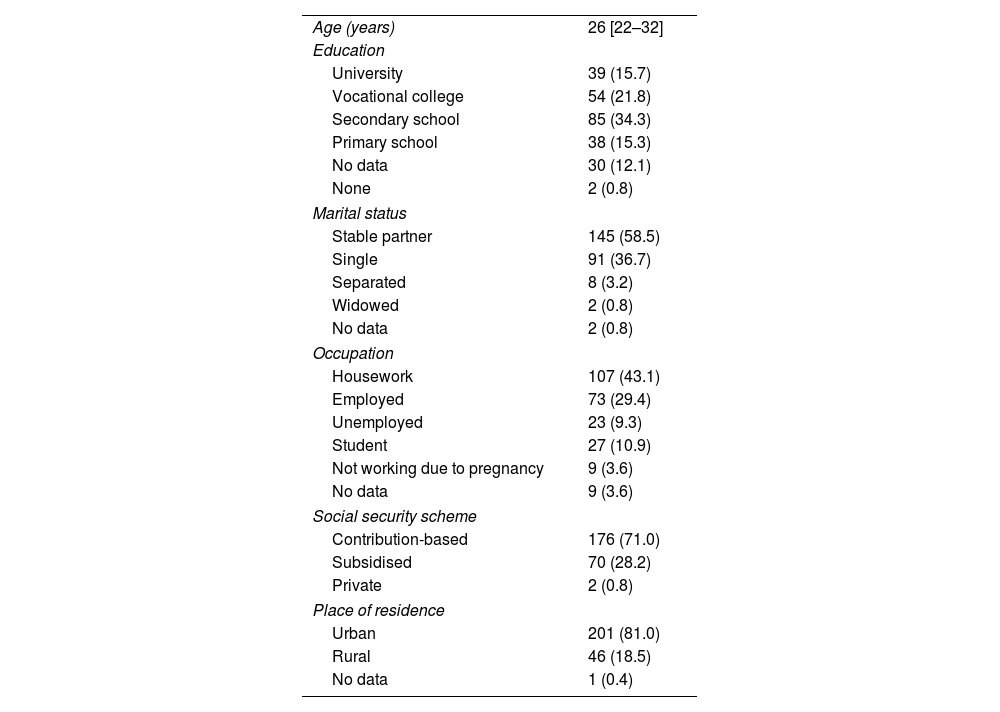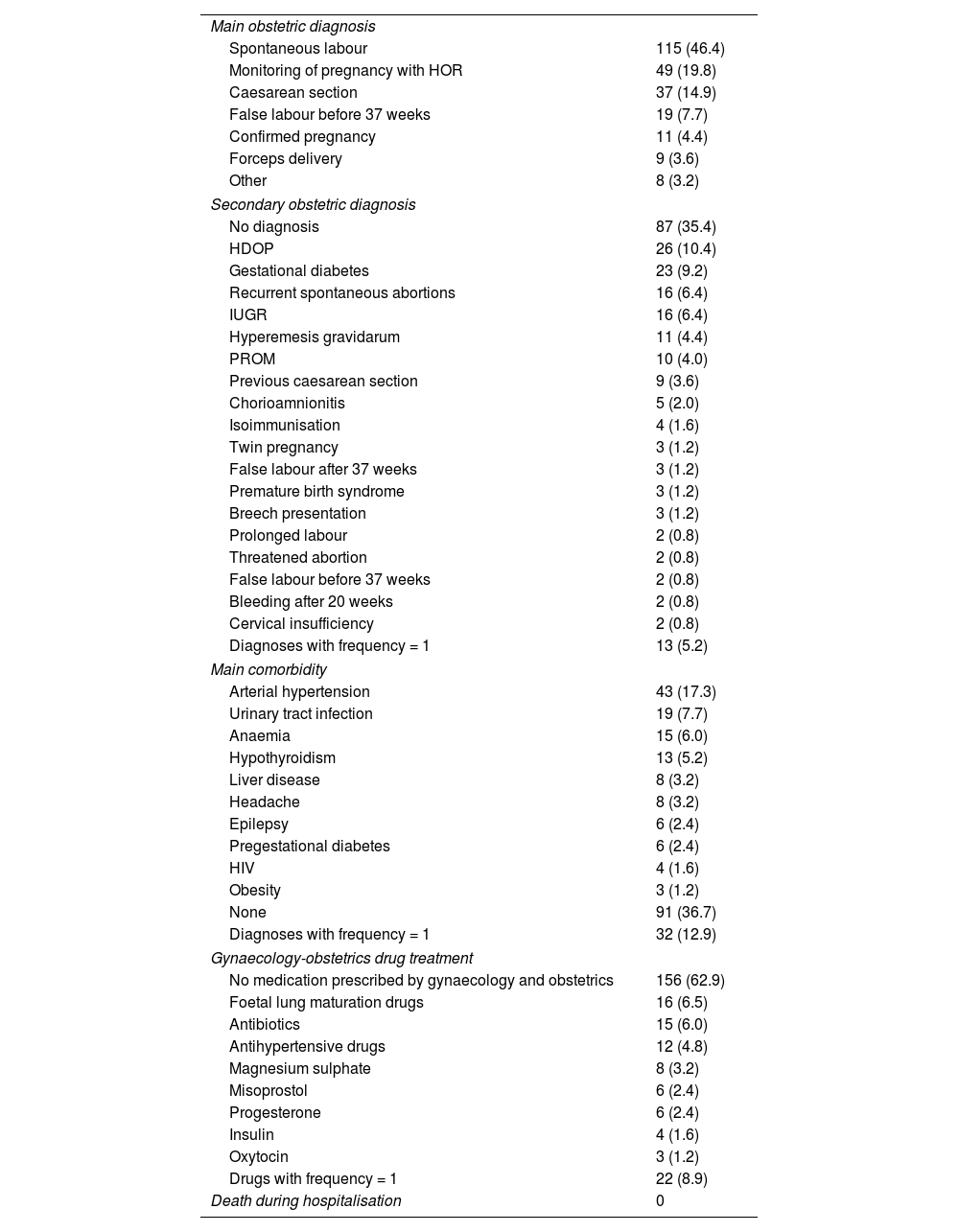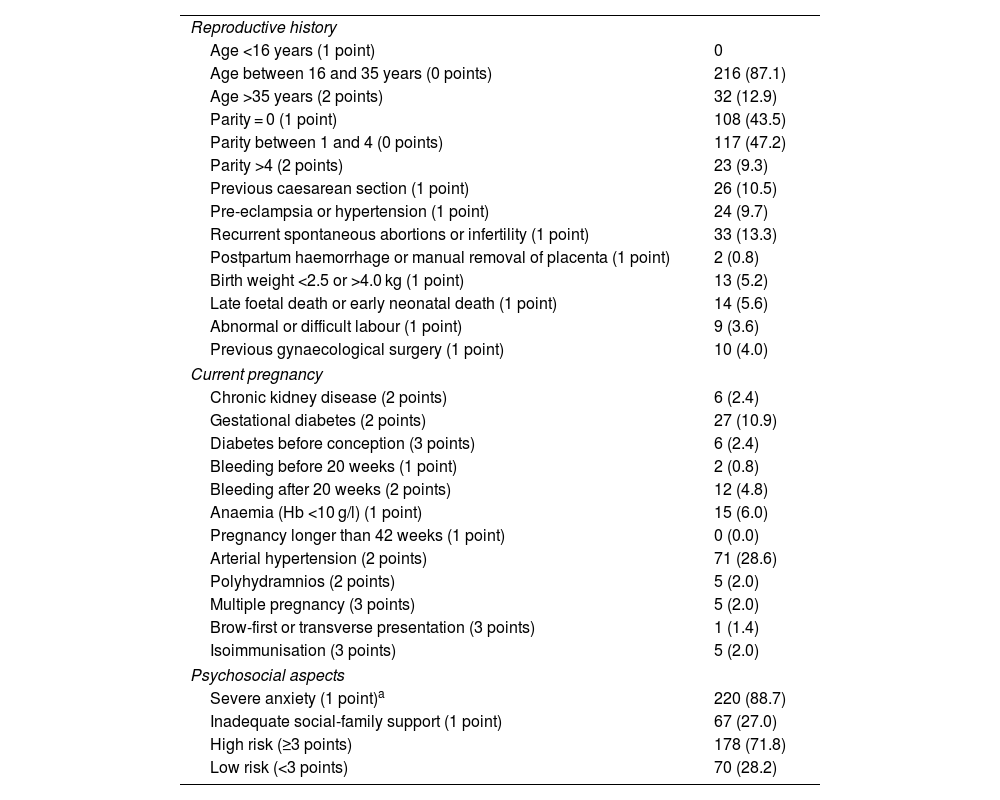To determine the psychiatric diagnoses and treatments of patients admitted to the high-risk obstetric service who underwent a consultation with a liaison psychiatrist.
MethodsA descriptive observational study that included pregnant women from the high-risk obstetric service of a highly specialised clinic in Medellín, who had a liaison psychiatry consultation between 2013 and 2017. The main variables of interest were psychiatric and obstetric diagnoses and treatments, in addition to biopsychosocial risk factors.
ResultsA total of 361 medical records were screened, with 248 patients meeting the inclusion criteria. The main prevailing psychiatric diagnosis was major depressive disorder (29%), followed by adaptive disorder (21.8%) and anxiety disorders (12.5%). The pharmacologic treatments most used by the psychiatry service were SSRI antidepressants (24.2%), trazodone (6.8%) and benzodiazepines (5.2%). The most common primary obstetric diagnosis was spontaneous delivery (46.4%), and the predominant secondary obstetric diagnoses were hypertensive disorder associated with pregnancy (10.4%), gestational diabetes (9.2%) and recurrent abortions (6.4%). Overall, 71.8% of the patients had a high biopsychosocial risk.
ConclusionsThe studied population's primary psychiatric disorders were major depressive disorder, adjustment disorder and anxiety disorders, which implies the importance of timely recognition of the symptoms of these perinatal mental pathologies, together with obstetric and social risks, in the prenatal consultation. Psychiatric intervention should be encouraged considering the negative implications of high biopsychosocial risk in both mothers and children.
Determinar los diagnósticos psiquiátricos y describir características clínicas, el riesgo biopsicosocial y los tratamientos de las pacientes hospitalizadas en el servicio de alto riesgo obstétrico para las que se realizó una interconsulta con psiquiatría.
MétodosEstudio observacional descriptivo en el que se incluyó a las pacientes del servicio de alto riesgo obstétrico de una institución de alta complejidad de Medellín para las que se interconsultó por psiquiatría de enlace entre 2013 y 2017. Las principales variables de interés fueron los diagnósticos y tratamientos tanto psiquiátricos como ginecoobstétricos, además de los factores de riesgo obstétricos y psicosociales.
ResultadosSe cribaron en total 361 historias clínicas, y 248 pacientes cumplían los criterios de inclusión. El diagnóstico psiquiátrico principal más prevalente fue trastorno depresivo mayor (29%), seguido por el trastorno de adaptación (21,8%) y los trastornos de ansiedad (12,5%); los fármacos más prescritos por psiquiatría fueron antidepresivos ISRS (24,2%), trazodona (6,8%) y benzodiacepinas (5,2%). El diagnóstico obstétrico principal más común fue el parto espontáneo (46,4%) y los diagnósticos obstétricos secundarios que predominaron fueron trastorno hipertensivo asociado con el embarazo (10,4%), diabetes gestacional (9,2%) y abortos recurrentes (6,4%). El 71,8% de las pacientes tenían un riesgo biopsicosocial alto.
ConclusionesLos principales diagnósticos psiquiátricos fueron trastorno depresivo mayor, trastorno de adaptación y trastornos de ansiedad, lo que implica la importancia del oportuno reconocimiento en la evaluación prenatal de los síntomas de estas entidades, conjuntamente con los factores de riesgo obstétrico y social. La intervención psiquiátrica es necesaria considerando las implicaciones negativas que tiene el alto riesgo tanto para la madre como para el niño.









